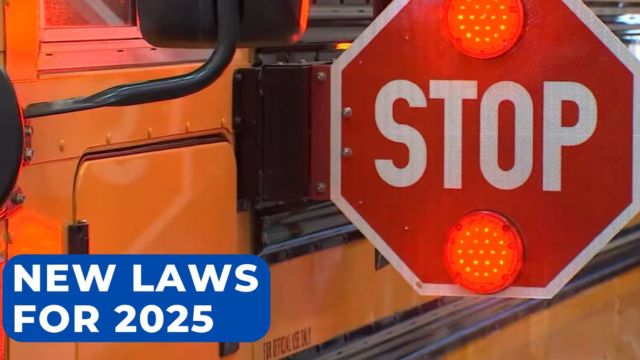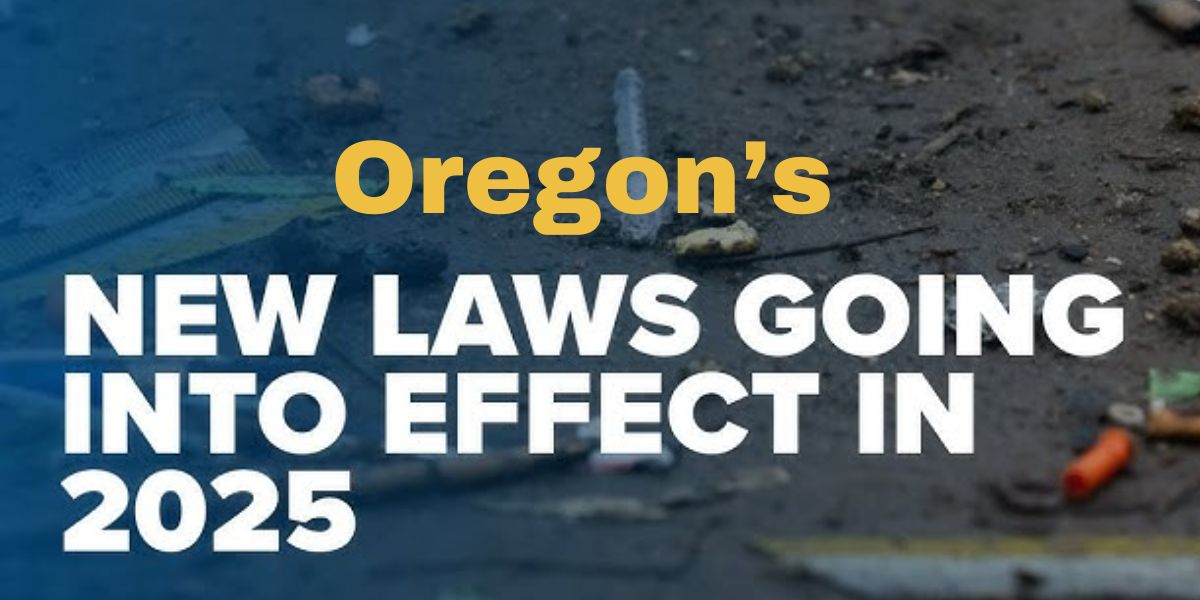Nearly two dozen measures that lawmakers passed early last year will quietly go into effect when Oregonians ring in 2025. These new regulations cover a lot of terrain, from tougher penalties for drug use on public transportation to a simpler way to restore your damaged equipment to apprehending drivers who fail to yield to school buses.
Here is a summary of some of the more noteworthy laws that will go into effect on New Year’s Day.
“Right to repair”
Oregon became the fourth state to pass a “right to repair” statute in early 2024 when Senate Bill 1596 was passed. Beginning on January 1, the law mandates that manufacturers of consumer gadgets, including cell phones, provide the equipment and expertise necessary to fix those devices.
The regulation was created in response to manufacturers that only allow a small group of experts to fix increasingly complicated devices. Repairs become more costly as a result.
Supporters claim that by allowing independent stores and owners to fix phones, the strategy will reduce waste as people choose to fix their damaged gadgets rather than buy new ones.
Although the law officially goes into effect this year, the state won’t start enforcing it until July 2027.
Using drugs when traveling
During the February 2024 session, lawmakers recriminalized the possession of substances such as heroin and meth, establishing new penalties that were implemented in September. However, on Wednesday, another new drug law goes into effect.
The Legislature established increased sanctions for anyone openly using illegal substances while riding a bus or light rail in response to safety concerns about public transit.
Previously an unclassified misdemeanor for drug possession, that is now a class A misdemeanor, carrying a harsher sentence of up to a year in jail.
Lawmakers debated expanding the penalty to include drug usage at bus stops and transit hubs, but ultimately decided against it. Illicit drug possession is still prohibited in certain areas.
Cleaner state funding
Advocates used a milder approach in 2024 after years of fruitless attempts to compel the state to withdraw public assets in fossil fuel businesses.
According to House Bill 4083, the Oregon State Treasury and Oregon Investment Council, two organizations involved in allocating the $96 billion state pension fund, must “act reasonably” to prevent the funds from going to businesses that engage in coal mining or the production of coal-powered electricity.
According to the law, those agencies must “make reasonable efforts” to look into the businesses the state invests in and warn that Oregon will stop funding them unless they take action to move away from coal, provided that the divestment can be completed without affecting pensioners’ funds.
Up to $1 billion in state money are allegedly invested in businesses that mine or burn coal, according to the advocacy organization Divest Oregon.
Cameras on school buses
This past year, school bus drivers and their employers informed lawmakers of an increasing issue they have observed: cars that do not stop when school buses flash red lights and extend their stop arms.

In support of House Bill 4147, the Oregon School Employees Association noted, “We all know this behavior is illegal and dangerous and, alarmingly, our members who drive buses every day say incidents are increasing.”
Following the bill’s implementation, school districts are now permitted to mount cameras on buses’ stop arms and send police footage of drivers so they can issue a penalty.
Cameras on school boards
School boards throughout the state will have to make audio or video recordings of their regular meetings available online within a week after the meeting beginning on Wednesday.
Beyond that, a lot of school districts currently provide livestream access to meetings as they take place. The idea behind Senate Bill 1502 was to make sure that the entire state provides residents with information about how significant choices pertaining to public education are implemented.
Meetings that are not publicly accessible under state law are exempt from the new regulations, as are school districts with less than 50 students.
SB 1502 was changed after some districts objected, fearing that the requirement would drain their budgets. The original language of the bill would have compelled school boards to broadcast their meetings whenever possible.
Legal Storm Hits Shari’s: Landlords Sue Over Millions in Rent Following Oregon Closures
Keeping money for a “rainy day”
Legislators made a quirky tweak last year that might help Oregon be ready for economic downturns. The maximum amount that can remain in the state’s Rainy Day Fund before lawmakers are permitted to forgo making contributions to the fund is increased under Senate Bill 1562.
As long as the fund had sufficient funds to cover 7.5% of the state’s general fund income, the Legislature was exempt from regular contributions under previous legislation. Legislators increased that requirement to 12.5% with a small adjustment, ostensibly guaranteeing the state will save more going forward.
The Rainy Day Fund is expected to receive an extra $200 million in June, bringing its current balance to approximately $1.7 billion.
New punishments for torturing animals
House Bill 4145, perhaps the most graphic issue lawmakers debated in 2024, made it illegal for anybody to produce, disseminate, or view video of animals being tortured or killed.
Under state law, torturing or intentionally killing animals was already a criminal, excluding lawful and authorized hunting, fishing, and trapping. Recording such acts is now also going on.
It is a criminal to distribute, own, or have access to the recordings.
The bill’s supporters said that although there are federal rules prohibiting the production of video depicting animal torture, they can be challenging to implement.
Oregon’s bill was dubbed “an additional tool for law enforcement to tackle these cases that might otherwise evade prosecution” by the Humane Society of the United States.

